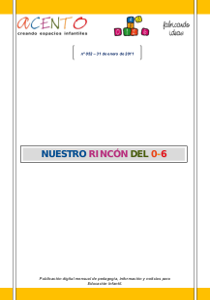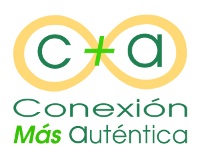my article “Play the yes’ in the 'no'” (2011)
14 December 2015
Tags: CNV, Interpersonal communication, Education, CI Spirals, My Classifieds, For parents, Texts CNV
This weekend I had the honor of participating in the I Congress on Emotional Education Navarra, organized by Formed parents. It was a conference organized with great interest, with great care and a good dose of courage. My presentation was specifically about “Affective education that protects against sexual abuse”, one of the themes that work from Spiral Consulting Children, of which I am a founding member. But in the end there was a panel discussion with questions for all speakers, we were sharing with the moderation of Sonsoles Echevarren, journalist from Diario de Navarra. It was a very interesting time, and although the questions were addressed to each speaker, at the end there were many in which we participate several more. In this context a very interesting question arose, “How do you listen to a child who refuses to leave the park?”. interesting and valuable answers were given, and I brought my contribution: “Listening yes’ in the 'no'”.
 Rescue in this blog because my article 'Listen to “yes” in the “no”‘, which it was published in the number 52 (January 2011) Magazine Our corner of 0-6, published by ACCENT (He continues no longer releasing new numbers, although still available). This article development more broadly what I argued then: When a person (and a boy or girl is also a person) dice “no”, He is saying “yes” many things, and if we listen to the entire message, we can create a deeper connection and find a satisfactory solution for all parties. The article begins:
Rescue in this blog because my article 'Listen to “yes” in the “no”‘, which it was published in the number 52 (January 2011) Magazine Our corner of 0-6, published by ACCENT (He continues no longer releasing new numbers, although still available). This article development more broadly what I argued then: When a person (and a boy or girl is also a person) dice “no”, He is saying “yes” many things, and if we listen to the entire message, we can create a deeper connection and find a satisfactory solution for all parties. The article begins:
mother, two and a half years, She does not want her coat to go outside. Joseph, four years, You do not want to lose the swing to go home. Irene, of five years, He does not want to go to sleep. Why not do those things that as adults we seem perfectly reasonable?
And what do we do next? ¿We yield and do what they want? Then we feel bad because we are not working to their education, and also it gives us the feeling of leaving aside what we as people also want. Would you force them to do what we want? Then we have guaranteed discussion and bad environment for a long time, long term and we are teaching them that in the end the important thing is to have power or strength, and that dialogue only serves when it is weak. In my personal and professional experience there is a third way, based on a deeper communication in each of these situations. And one of the skills that we developed in the workshops I facilitate is the ability to listen to what they say “yes” our children when they say “no”.
Download the full article “listen to the “yes” in the “no”‘
Hope you find it interesting.
Xavier

